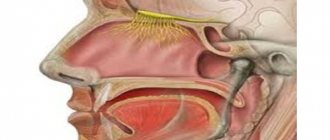What is sensory deprivation?
In official psychology, such a term means complete or partial, short-term or long-term restriction (deprivation) of stimulation of the senses. Sometimes the restriction can be voluntary and conscious. The spiritual teachings of antiquity (Egypt, Maya, Tibet) included mandatory practices of solitude and long-term meditative self-absorption. The experience gained helped me to know myself, the laws of the universe, and develop the necessary personal qualities.
Information hunger
In the modern world, overflowing with information flows, such a concept still exists. An acute feeling of lack of information to make decisions about further actions arises in conditions of abundance, but chaos. All facts have equal weight and significance. As a result, the need for information saturation remains unsatisfied.
Tactile deprivation
Skin is the largest organ of our body. It is rich in sensitive receptors. Touch, mechanical irritation of the receptors of the surface layers of the skin (massage, spa treatments) in many cases have a beneficial effect on the general condition of the body and psyche. Lack of physical contact leads to disruptions in many areas of life.
Advantages and disadvantages
In modern society, retreats have become widespread - the practice of solitude, concentration on one’s inner world, and silence. Gaining such experience helps to re-evaluate and re-set existing priorities, structure and harmonize the internal space, and make the right decision.
Forced or forced deprivation (limitation) of the supply of sensory stimuli is fraught with the development of inappropriate behavior and delayed mental development. In severe cases, chronic and incurable diseases of a psychosomatic nature are diagnosed. The emergence of addictions to alcohol, gambling or computer games, or drugs is a person’s attempt to diversify his life and escape from deprivation.
Sensory deprivation capsule
It is convenient to study the phenomenon of deprivation and its impact on a person’s physical and mental health in a specially equipped space. This container is completely isolated from any external irritants and filled with warm salt water. The subject is immersed in it for several hours a day. With the help of sensors, neuroscientists gain access to the processes occurring in the mind of a person who is in sensory isolation.
The inventor of the camera, physician John Lilly, believed that in a confined space it is best to study all the stimuli necessary for the functioning of the brain and the development of the psyche. The results obtained allowed researchers to begin studying the brains of large mammals and even create a map of communicative signs for communication between dolphins and humans.
Prolonged (for an hour) stay in the capsule produces a pronounced therapeutic effect:
- transfers the brain to the most resourceful state of alpha and theta waves;
- has a deep and pronounced relaxation effect on the internal organs and tissues of the body;
- introduces a person’s consciousness into a non-judgmental state of “flow”, weakening the “iron grip” and reducing the desire to control the world around him;
- harmonizes and pacifies the internal space;
- increases awareness, enhances intuition, promotes the emergence of insights and creative ideas.
The float capsule (sensory deprivation chamber) was created in 1954 by American psychotherapist and neuroscientist John Lilly. The theoretical foundations for its creation were laid by research conducted during the Second World War. In the post-war years, when John Lilly worked at Pennsylvania State University, he wrote a paper on the functioning of brain structures and electrical activity of the brain.
Positive and negative effects of sensory deprivation
This technique looks a little scary. However, it has a lot of advantages when it comes to people with varying degrees of psychological exhaustion. Positive effects of short-term sensory deprivation:
- You will instantly relax both physically and emotionally. There are no external irritants in such a chamber, which helps relieve stress on the nervous system. If you want to get rid of chronic stress, this technique is what you need.
- Being in a concentrated saline solution allows your joints to rest. The spine stretches and the muscles relax. This is especially true if your job involves sitting in an office chair for long periods of time.
- Relieves pain from intervertebral hernias and gout. If you play sports and know what knee pain is, regular visits to a sensory deprivation chamber will relieve you of unpleasant sensations.
Photo by Anete Lusina: Pexels
- In conditions of a lack of feelings, emotional hunger develops, which is compensated by increased imagination and activation of figurative memory. You will like this effect if you are involved in a creative profession.
- The respiratory rhythm and heartbeat stabilize. This is especially true if you have problems with blood vessels and lungs. Sensory deprivation is recommended for patients with hypertension, so you can attend this procedure even with high blood pressure.
- Strength appears for brainstorming. If you can’t concentrate on an important task and generate an original solution to the problem, floating will be a good incentive for increased mental activity.
All these beneficial properties apply specifically to short-term sessions of complete sensory deprivation. Therefore, the procedure is usually carried out for a maximum of 120 minutes. A longer absence of any sensations has an extremely negative effect on the psyche:
- loss of connection with reality;
- the occurrence of hallucinations;
- inability to concentrate;
Photo by BARBARA RIBEIRO: Pexels
- irritability;
- emotional and mental inhibition;
- depression;
- disruption of sleep rhythm and the occurrence of nightmares that are difficult to distinguish from reality;
- sudden changes in mood (symptoms of depressive-manic syndrome;
- panic attacks.
The floating procedure itself is considered completely safe. But it will still be better if, before starting a health course, you first visit your doctor and consult with him about the possibility of using this technique.
Types of deprivation
Depending on the direction, several types of deprivation are distinguished:
- Motor Its signs (apathy, depression, reluctance, reluctance to solve complex problems) appear when activity (ability to move) is limited for 15 days - 4 months.
- Cognitive Its cause is information hunger, which appears against the background of scattered and contradictory information about current events.
- Emotional The opposite of reactions (from withdrawal to affect) makes it difficult to diagnose; the sphere of communication suffers.
- Social Isolation from society, the reasons for which may be different.
- Existential It is associated with issues of searching for meaning and guidelines; occurs during sudden life changes (age periods, changes in status, living conditions).
- Educational Reluctance to receive new information and knowledge is associated with a loss of motivation for the learning process.
- Cultural Aversion to the process of learning and using knowledge..
Sensory deprivation itself, as limitation or forced filtering of external stimuli of various modalities, is combined with other types of deprivation. It is observed by psychologists at any age or during the transition from one age period to another. The peculiarities of its course and consequences depend on the general stability of the individual, his orientation (extrovert-introvert), and accentuation of character.
Treatment for sensory deprivation
In the case of forced or forced deprivation, the need for treatment arises, since such a condition interferes with the normal functioning of the individual. But it is worth noting that sensory deprivation most often occurs with its other types. Therefore, treatment must be carried out comprehensively: psychotherapeutic and medicinal.
But it is much more important to prevent deprivation in either children or adults. There are a number of preventive indications for this, which are based on satisfying the required amount of sensory stimuli and awakening a person’s senses: music therapy, aromatherapy, fairy tale therapy, and more.
Loneliness among people
Voluntary or forced isolation of a person is always an alarming symptom. If a person isolates himself, distances himself from society, this may reveal his inability to enter into social contacts, create and maintain relationships with people for a long time. The reason for this situation is most often basic illiteracy in matters of communication and poor communication skills. Sometimes destructive behavior occurs (tactlessness, aggressiveness, irritability, increased emotionality and excitability).
A separate type of social self-isolation is considered complete immersion in the virtual world. Passion for computer games, hours of “hanging out” on social networks, and constant viewing of electronic messages contribute to the alienation of the individual, reducing his contacts with loved ones and significant people. The individual's share of participation in public affairs, and consequently his influence on current circumstances, is steadily decreasing. This creates dependence on the virtual world, creates illusions and inadequate perceptions.
Important! Formal communication, which does not involve a large number of social contacts, should be distinguished from social isolation. The first is the norm for most temporary (functional, mobile) teams (groups, teams). Such relationships arise when an individual enters a certain environment (closed community). They are characterized by voluntary acceptance and submission to existing rules, communication patterns, and a minimum amount of informal (non-statutory) communication.
What is deprivation
Deprivation is often hidden or not realized by a person, it is masked. Outwardly, a person and the conditions of his life may look prosperous, but at the same time, a conflict rages inside the person and discomfort is felt. Long-term deprivation creates chronic stress. The result is prolonged stress.
Deprivation is similar to frustration, but there are 2 main differences between them:
- deprivation is not as noticeable to the individual as frustration;
- deprivation occurs with prolonged and complete deprivation, frustration is a reaction to a specific failure, an unsatisfied need.
For example, if a child’s favorite toy is taken away but given another, he will experience frustration. And if you completely forbid playing, then this is deprivation.
Most often we are talking about psychological deprivation, for example, when deprived of love, attention, care, and social contacts. Although biological deprivation also occurs. It can be threatening to the physical and mental development of the individual (its self-actualization, self-esteem) and non-threatening. The latter is more like frustration. For example, if a child is not bought ice cream, he will experience non-threatening deprivation, but if he systematically goes hungry, he will experience threatening deprivation. But if the same ice cream is a symbol of something for a child, for example, parental love, and he suddenly does not receive it, then this will cause serious personality changes.
The appearance and severity of deprivation largely depend on the individual personality characteristics of a person. For example, two people may perceive and endure social isolation differently, depending on the value of society for each and the severity of the need for social contacts. Thus, deprivation is a subjective state that is not repeated in the same way in different people.
Reasons for development
The etiology of this disorder is different. But the symptoms, and most importantly, the consequences, are largely similar. Difficult mental states, as a rule, require the intervention of specialists.
External reasons
Disrespect for the individual causes sensory deprivation. It manifests itself on several levels at once:
- from the state, pro-government and security forces:
- in a professional team (group), when a person does not have the full right to express his opinion, participate in public affairs or influence current projects;
- in the parental family, where the interests of a person remain indifferent, there is no feedback between parents and children.
Internal reasons
A person carries the feeling of uselessness and reacting from the position of a victim throughout his life. In most cases, they are formed in childhood. Children with such pathologies are raised in single-parent families, where the mother does not physically have time to pay attention to the child. Alternatively, children grow up in nurseries, in 24-hour preschool groups, in boarding schools or orphanages.
Sometimes parents themselves have negative memories of their own childhood. In this case, they reproduce the educational schemes and traditions of their families, passing on pathological patterns of response to the situation to the child.
Deprivation is often observed in highly sensitive children who require increased attention from adults. The lack or absence of new impressions during the most sensitive period (up to 6 years) leads to inadequate perception of visual and auditory stimuli.
Reasons for the development of sensory deprivation
Problems with the perception of the surrounding world are most often caused by physical disabilities of the human body or extreme situations. It should also be noted that the condition in question has two forms of manifestation: hidden and obvious. An obvious form of stimulus deprivation is typical for children in orphanages and people serving sentences in correctional institutions. A hidden form of deprivation can manifest itself even in the presence of favorable conditions for life.
Sensory deprivation is a multifactorial disorder, the causes of which can have both internal and external “roots”. Most often, such a disorder manifests itself in a child when his parents abandon him. Also, external causes of the development of the disease include a lack of parental love and disturbances in the functioning of sensory organs. Often, a dysfunctional family and a child’s long stay in a boarding school are considered as the cause of such problems. However, according to experts, the main reason for this syndrome is neglect of the child’s need to understand the world around him.
The influence of sensory deprivation and sensory enrichment on a child's development is of particular importance in the formation of personality. Both temperament and other personal characteristics can complicate this process. Experts from the field of psychology say that in the life of every child there are moments in which he needs maternal care. Parental attention is of paramount importance between the ages of eighteen and thirty-six months . Having reached the age of three, the baby begins to explore the world around him independently. Until this time, all processes of building relationships with surrounding objects are carried out with the help of parents. The lack of relationship between parents and child can lead to disturbances in the perception of incoming information.
Sensory deprivation is widely used as a means of combating many emotional conditions and diseases.
Factors leading to sensory loss in adults:
- Restriction of incoming information when staying in institutions that restrict freedom (military schools, prisons, closed hospitals).
- Prolonged stay in one room, provided there is no opportunity to go outside or enter into any other form of contact with the “outside” world.
- Using special techniques to reduce your own perception (meditation, yoga).
- Features of the professional sphere.
- Problems with perception arising from illnesses and injuries that cause loss of vision, hearing or sensitivity.
- Various extreme situations not related to a person’s desire to reduce the quality of interaction with the outside world.
It is important to note the fact that sensory deprivation can have both constructive and destructive effects on the human psyche. An important role in this matter is played by the level of emotional and mental preparation for such deprivations. In the case of an unprepared person, the appearance of problems associated with perception can cause the development of various diseases. Research on this topic has helped scientists understand the characteristics of various phobias and diseases such as autism. Having some preparation for such deprivations allows a person to better understand his inner world and reveal new facets of his intellectual and creative capabilities.
Sensory deprivation in childhood and adolescence
The first most significant person for a child is the mother. And the presence of physical contact in early childhood is very important for its normal mental and physical development. The consequences of tactile deprivation (absence or lack of caresses and stroking) are akin to the body not receiving enough nutrients and hunger. It leads to depletion of the nervous system and vitality.
In older childhood and adolescence, emotional deprivation is usually added to the pathological lack of tactile contacts. Lack of support, attention and understanding from loved ones leads to emotional starvation and the formation of neurotic behavior. In the worst case, the teenager withdraws into himself and finds a company that shares his immature interests and needs.
Important! Signs of deprivation that appear in children lead to serious consequences. At the behavioral level, a persistent position of the victim, pronounced neurotic reactions, and aggression towards others are formed. Difficult-to-diagnose psychosomatic diseases appear, social disadaptation increases, and everyday and professional skills are lost. A grown-up child is haunted by depressive thoughts, he becomes withdrawn and disappointed in life.
Cognitive and motor deprivation
Cognitive deprivation occurs not only during periods of pedagogical neglect, when the child is not raised and is not involved in his development.
But even if education (what is it?) does not correspond to personal characteristics and cannot reveal the individual’s potential; if the brain requires information and cannot receive it.
This deprivation leads to :
- delay in intellectual development;
- inadequate understanding of the environment;
- problem to act productively;
- anxiety and fear due to ignorance;
- boredom.
Motor deprivation is a restriction of movement due to a chronic illness, a car accident, or being in captivity.
It can cause:
- depressive disorder;
- apathy;
- anxiety;
- hypochondria (what is it?).
Treatment methods
At the initial stages, auto-training techniques, deep relaxation, and self-regulation help cope with the symptoms of depression or depressed state. In other cases, corrective methods are selected by a psychologist or psychotherapist. Sometimes it is necessary to work with the person’s environment (environmental therapy) or change the patient’s lifestyle.
The instability of the current world is one of the main causes of sensory deprivation. People of all ages, races and nationalities are at risk of finding themselves in information and sensory isolation. Men and women get married and maintain the appearance of a strong family, remaining cold and indifferent to each other, only for the sake of children.
At the same time, their own emotional needs remain unsatisfied. To maintain status or social security, people go to boring jobs. Many are afraid of poverty, emotional instability, and fear of unemployment.










